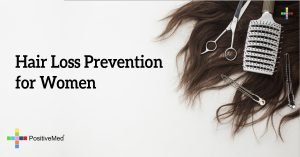
Despite the foundational assumption of trust in intimate relationships, research reveals that lying is prevalent among romantic partners. A study by the University of Kassel explores the personality trait, “honesty-humility,” and its link to deceptive behaviors in relationships. Understanding the cues and predictors of dishonesty can pave the way for more authentic and fulfilling connections.
1. The Dual Nature of Deception: Self-Focused and Other-Focused Lies
People lie in relationships for various reasons, including self-enhancement (self-focused lies) and protecting their partners (other-focused lies).
The personality trait “honesty-humility” plays a pivotal role in determining the likelihood of engaging in both types of deceptive tactics.
2. Unveiling the Personality Trait: “Honesty-Humility”
“Honesty-humility” involves a commitment to truthfulness and a lack of self-aggrandizement, intertwined with moral standards.
Researchers conducted 11 experiments measuring honesty-humility to understand the extent of lying in romantic relationships.
3. Frequency of Lies: Observations and Diary Studies
Studies revealed that individuals low in honesty-humility engaged in both self- and other-focused lies in romantic relationships.
Diary studies showed that participants reported lying in approximately 27% of their interactions with their partners over five days.
4. Financially Motivated Deception: How Far Will a Liar Go?
The study delved into situations where participants could benefit financially at the cost of their partners.
Participants low in honesty-humility were more likely to engage in deceptive behaviors for personal gain, emphasizing the role of “exploitation.”
5. Detecting Deception: Signs and Domains of “Honesty-Humility”
Behavioral observations such as tax evasion, hypocrisy, gambling habits, and conspicuous consumption can serve as indicators of dishonesty.
The domains of honesty-humility—sincerity, fairness, greed avoidance, and modesty—offer insights into a partner’s propensity for lying.
6. Navigating Honest Communication in Relationships
Identifying potential signs of dishonesty can be crucial for those in formative stages of a relationship or committed to long-term partnerships.
Honest individuals can use this knowledge to initiate open conversations about expectations, values, and the importance of truthfulness.
While having a completely honest partner is ideal, recognizing the signs of deception and understanding the role of personality traits can contribute to building stronger, more transparent connections. Initiating conversations about values and expectations fosters a culture of honest communication, promoting genuine and fulfilling relationships.





